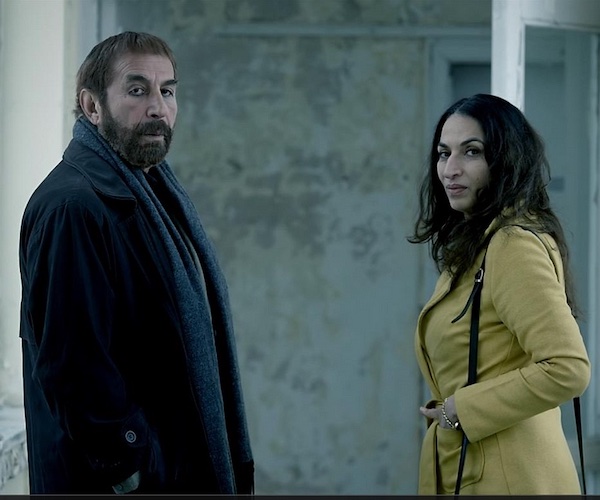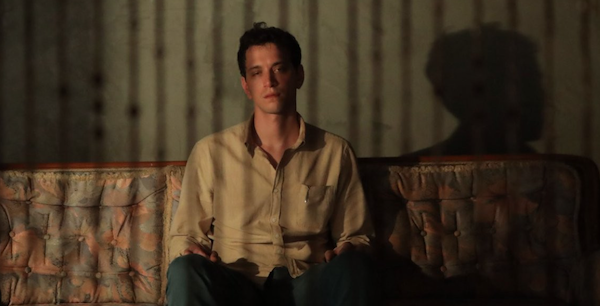Film Review: Two at the Boston Turkish Film Festival — “Kerr” and “The Burning Days”
By Tim Jackson
In Turkey, liberal filmmakers must find ways to address system wide abuses without offending the censors: the opening and closing films at this week’s Turkish Film Festival make good use of that strategy.
The Boston Turkish Film Festival, March 24 through 26 at the Museum of Fine Arts, Boston

A scene from Tayfun Pirselimglu’s film Kerr.
Turkey’s premier filmmaker, Nuri Bilge Ceylan, calls his homeland a “beautiful and lonely” country. Movies from Turkey often concern ordinary people who are bedeviled by systemic injustice, small-minded prejudices, provincialism, and bureaucratic incompetence. Political repression is universal, but in Turkey the stakes are high: powerful authorities harass rights defenders, violate their right to assembly and employ terrorism and defamation against dissent. In Istanbul, the annual LGBT Pride march was banned. Turkey withdrew from the Istanbul Convention, a major reversal in what seemed to be forward momentum regarding efforts to combat gender-based violence. Officials claimed that the convention “normalized homosexuality.” Most horrifically, corrupt building practices were, in part, responsible for the wide spread destruction and shocking number of fatalities stemming from the recent earthquakes. Liberal filmmakers must find ways to address system wide issues without offending the censors: the opening and closing films at this week’s Turkish film festival are no exception.
The festival screenings begin with the black comedy Kerr, a Kafkaesque journey that cruises along at the pace and logic of a David Lynch film. The director, Tayfun Pirselimglu, is a writer, director, visual artist, and author of six novels and three storybooks. Adapted from one of his novels, the narrative is a surreal descent into a small town. The plot is filled with unanswered questions and questionable motivations. Can, a printer, has returned to his small hometown to attend the funeral of his father, a well-regarded tailor. In the men’s room at the railroad station he witnesses a murder. The police seem oddly disinterested in solving the crime; they ask irrelevant questions and regard Can with long suspicious stares. A motley group of dour and extravagantly mustachioed old men show up at various times: they, too, regard Can with long vacant stares. When he visits his father’s tailor shop, a man walks in to reclaim a suit he left to be adjusted years ago. Can recognizes him as the killer. He soon discovers that the murder victim was the husband of his father’s caregiver, who may have been having an affair with the murderer. These are the bare bones of a plot that continually takes ambiguous twists and turns. Rabid dogs are roaming the city; unexplained holes are appearing in floors and streets. Can becomes increasing fearful that he is being considered as a murder suspect.
The befuddled face of the lead actor, Erdem Şenocak, lends the character flickers of deadpan comedy as he walks through bleak interiors shot in a pallet of greens and greys. Pirselimglu’s vision is focused on the breakdown of reality. “Nothing here is what it seems” is a line repeated. several times. According to the film’s director: “Logic is evaporating and insanity is coming into power. We’re stuck in a world on the edge of madness and people are living happily in this abnormality.”

A scene from Burning Days.
Another film about small city corruption and collective madness, Emin Alper’s Burning Days, closes the festival. Alper is becoming one of Turkey’s top directors. His earlier work has won numerous awards. His latest film won the Certain Regard Award at Cannes and has been nominated — or won — the Best Film prize at numerous global festivals. The plot’s look at corruption is nothing new. A new prosecutor, Emre, has been sent to a Yaniklar, a small town where he sets out to make improvements, only to find himself tumbling down a rabbit hole of conspiracy, homophobia, and toxic masculinity. Selahbattin Pasali plays Emre and he does right by the character: Neatly dressed and with boyish good looks, Emre is clearly a fish out of water.
The film opens with Emre looking into a huge sinkhole that has become a problem. There is also a serious water shortage. While returning to his office one day, he hears gunshots. The townsfolk are firing pistols during a wild boar hunt; they are chasing the animal through the town streets. The hunt is illegal, bu locals refuse to let the tradition die. In order to put any misunderstandings aside, Emre is invited to the mayor’s house for dinner with the politico’s abrasive son, Sahin, and his giggling pal, Kemal, played by the lead actor in Kerr, Erdem Şenocak. Emre unwisely knocks back far too many shots of raki, or ‘Lion’s Milk’, the very potent national drink of Turkey. He begins to black out. Just then a “half-wit” woman is brought in to dance and entertain the guests. This is the last thing Emre remembers.
When the woman reports that she was raped, things go from bad to worse. Emre cannot recall exactly what happened after he passed out. This introduces the possibility that he was framed and set up. There is one person willing to help him, the opposition newspaper editor. Their friendship begins to raise suspicions among the already angry townsfolk that the two men are homosexuals. Luckily, Burning Days avoids preaching about hatred of gays. With its crumbling city walls, rampaging wild boars, sinkholes, and a plot premised on the vicissitudes of memory, Alper has come up with a nightmarish thriller that manages, along the way, to safely comment on a society rife with arrogance, political corruption, and blind patriarchy.
Two 50 minute short films will also screen at the Festival on March 25, followed by a discussion led by Arts Fuse film critic Peter Keough.
Tim Jackson was an assistant professor of Digital Film and Video for 20 years. His music career in Boston began in the 1970s and includes some 20 groups, recordings, national and international tours, and contributions to film soundtracks. He studied theater and English as an undergraduate, and has also worked helter skelter as an actor and member of SAG and AFTRA since the 1980s. He has directed three feature documentaries: Chaos and Order: Making American Theater about the American Repertory Theater; Radical Jesters, which profiles the practices of 11 interventionist artists and agit-prop performance groups; When Things Go Wrong: The Robin Lane Story. And two short films: Joan Walsh Anglund: Life in Story and Poem and The American Gurner. He is a member of the Boston Society of Film Critics. You can read more of his work on his blog
Tagged: Burning Days, Emin Alper, Erdem Şenocak, Kerr, Selahbattin Pasali, The Boston Turkish Film Festival
